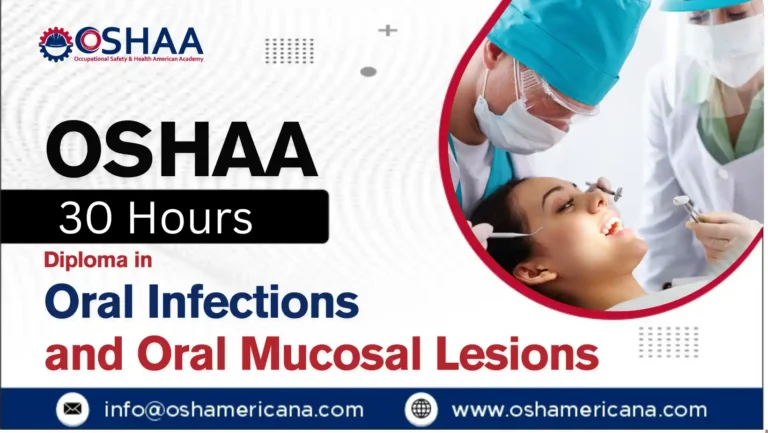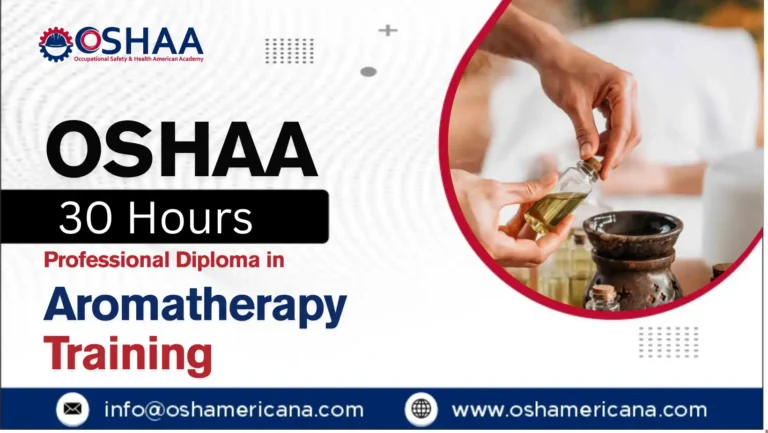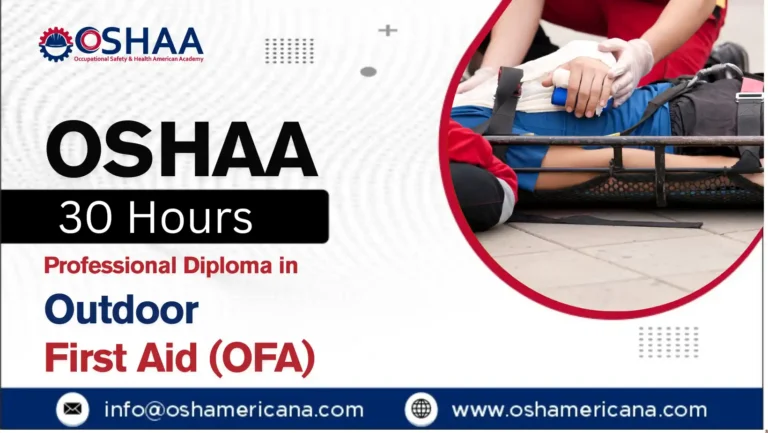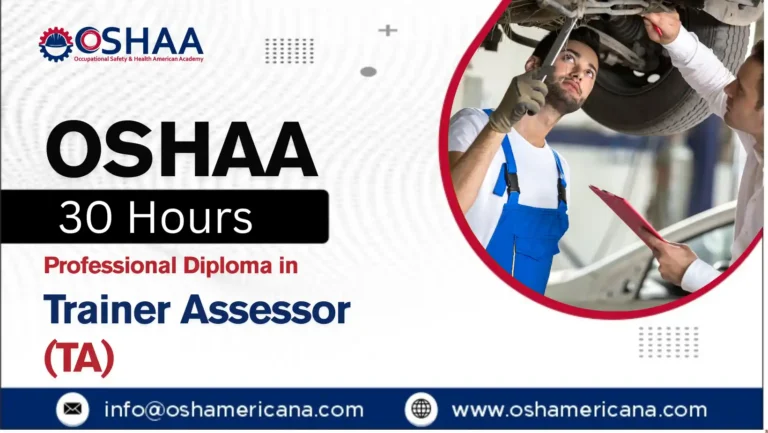Safe and sustainable water treatment is fundamental to public health, environmental protection, and industrial operations. With increasing global demand for clean water, the importance of skilled professionals in water treatment and purification has never been greater. The OSHAA 30-Hours Professional Diploma in Water Treatment and Purification is designed to address this critical need, offering participants essential knowledge and practical expertise to manage water systems effectively and responsibly.
This diploma, issued by the Occupational Safety and Health American Alliance (OSHAA), is a comprehensive training programme tailored for individuals involved in water treatment, purification processes, and environmental safety. The course provides an in-depth understanding of treatment technologies, system management, and health and safety considerations relevant to water purification.
The OSHAA 30-Hours Professional Diploma in Water Treatment and Purification offers a critical stepping stone for anyone involved in or aspiring to join the water treatment industry. With a strong focus on health, safety, and sustainability, the course equips professionals with the tools needed to manage systems responsibly and efficiently.
As global attention turns increasingly to clean water access and environmental stewardship, qualified professionals in this field will play an essential role in shaping a safer and more sustainable future.
OSHAA 30-Hours Professional Diploma in Water Treatment and Purification
Study Units
Learning Outcomes
Introduction to Water Treatment and Purification (2 hours)
- Understand the basic principles of water treatment and purification
- Recognise the importance of water quality and its impact on public health
- Identify the key stages of the water treatment process
Water Quality Parameters and Standards (3 hours)
- Learn the key water quality parameters such as pH, turbidity, dissolved oxygen, and chemical contaminants
- Understand international and local water quality standards and regulations
- Assess water quality in terms of safety and compliance with regulatory standards
Physical and Chemical Treatment Processes (4 hours)
- Gain knowledge of the physical treatment processes like filtration and sedimentation
- Understand chemical treatment processes including coagulation, flocculation, and disinfection
- Learn how to select appropriate treatment methods based on water quality issues
Biological Treatment Methods and Microbial Control (5 hours)
- Understand the role of biological treatment processes in water purification
- Learn about common microbial contaminants and their control in water treatment systems
- Explore biological treatment methods such as activated sludge and biofilters
Treatment Plant Operations and System Maintenance (4 hours)
- Learn the day-to-day operations involved in managing a water treatment plant
- Understand the maintenance of water treatment systems to ensure optimal performance
- Identify common operational challenges and troubleshooting techniques
Chemical Handling and Storage Safety (5 hours)
- Understand the safe handling, storage, and disposal of chemicals used in water treatment
- Learn about the risks associated with chemical treatments and how to mitigate them
- Apply safety protocols to minimise chemical-related hazards in treatment facilities
Risk Assessment in Water Treatment Facilities (4 hours)
- Understand the process of risk assessment within water treatment operations
- Learn how to identify hazards and assess potential risks to water safety and plant operations
- Develop strategies to mitigate identified risks and improve operational safety
Regulatory Compliance and Environmental Guidelines (3 hours)
- Understand key regulatory frameworks and environmental guidelines related to water treatment
- Learn how to comply with local, national, and international water treatment regulations
- Understand the environmental impact of water treatment and purification processes
Here are the course benefits for the OSHAA 30-Hours Professional Diploma in Water Treatment and Purification:
- Comprehensive Knowledge: Gain a thorough understanding of water treatment processes, from physical and chemical methods to biological treatment systems.
- Practical Application: Learn how to apply industry-standard treatment techniques to real-world water quality challenges.
- Health and Safety Focus: Enhance your ability to manage chemical handling, storage safety, and health protocols within water treatment facilities.
- Regulatory Compliance: Gain a solid understanding of local and international water quality standards and environmental guidelines to ensure compliance and sustainability.
- Risk Management: Develop critical skills in risk assessment and hazard identification to improve the safety and efficiency of water treatment operations.
- Career Advancement: Add an internationally recognised qualification to your professional credentials, boosting employability and career prospects in the water treatment and environmental sectors.
- Improved Operational Efficiency: Learn essential maintenance and operational strategies to optimise treatment plant performance and minimise downtime.
- Environmental Contribution: Contribute to environmental sustainability by ensuring effective water treatment processes that protect public health and natural resources.
- Flexible Learning: Study at your own pace with flexible learning options, making it easier to balance professional commitments while enhancing your skills.
- Enhanced Safety Protocols: Equip yourself with the knowledge to implement and monitor health and safety measures within water treatment plants, reducing accidents and improving overall safety standards.
This diploma offers a holistic approach to water treatment, providing both the technical and safety knowledge required to manage water purification systems effectively.
The OSHAA 30-Hours Professional Diploma in Water Treatment and Purification is designed for individuals seeking to build or enhance their expertise in the water treatment sector.
- Water treatment plant operators and technicians
- Environmental engineers and specialists working in water quality management
- Public health officers involved in water safety and sanitation
- Facility managers and maintenance personnel in industries reliant on water systems
- Chemical safety officers and environmental safety professionals
- Engineers working in the utilities and infrastructure sectors
- Individuals pursuing a career in water treatment or environmental management
- Health and safety officers with a focus on water purification operations







